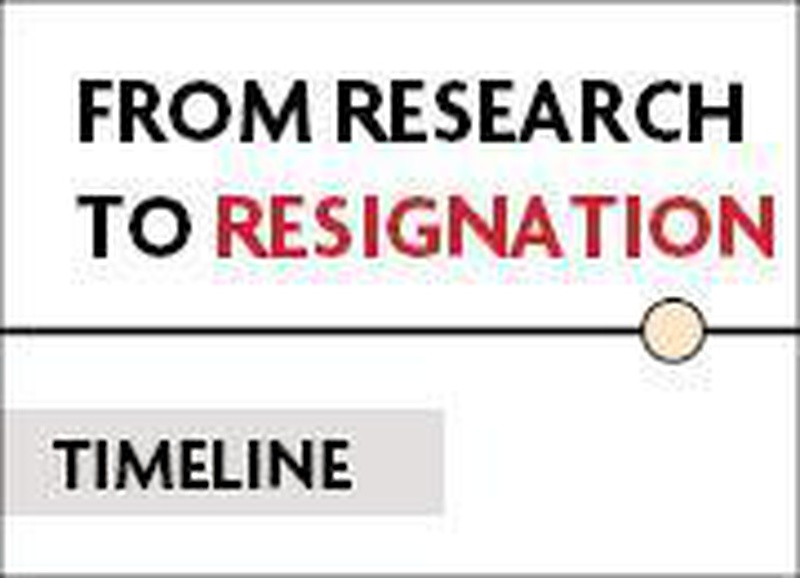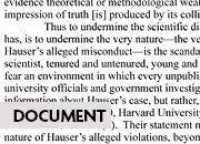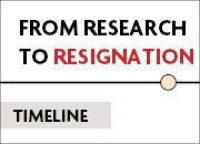A letter signed by a group of prominent academics lambasts Harvard and the media for the role they played in the investigation of former Harvard psychology professor Marc D. Hauser.
“[The investigation] has a distinctive ring of McCarthysim, and all the toxic implications of that witch-hunting era,” the authors of the letter write.
The letter—which was signed by MIT Linguistics Professor Noam Chomsky, one of Hauser’s mentors—criticizes the scope of the inquiry into Hauser’s research, the media frenzy that followed the release of Harvard’s findings, and insinuations that Hauser’s body of work has been thrown into question by the investigation.
Quoting a scientist who says Harvard trespassed against “elementary principles of natural justice,” the letter says that after the investigation into Hauser’s work researchers should now fear an “inquisitorial method that abolishes the scientific method.”
Eight academics from the United States, the United Kingdom, France, and Brazil signed the letter, including Harvard Professor of Molecular and Cellular Biology Florian Engert. It has been circulated among top academics.
The Crimson obtained a copy of the letter—titled “Could the Process of Investigating Scientific Misconduct Undermine Scientific Inquiry?”—from the authors.
Following allegations that Hauser falsified research data, a three-year investigation into Hauser’s research found him “solely responsible for eight counts of scientific misconduct,” Dean of the Faculty of Arts and Sciences Michael D. Smith wrote in a letter last August. Reports attributed the source of those allegations to his graduate students.
In the fallout from the investigation, Hauser took a year-long leave of absence, was then barred from teaching for another year, and ultimately resigned from his tenured position this summer.
The letter condemns Harvard for seizing what the academics see as an excessively wide array of documents from Hauser’s lab, ranging from emails to financial documents. Such an action, the academics argue, represents a violation of free scientific inquiry.
The authors take particular umbrage with the seizure of unpublished research, saying that it should not have been included in the research misconduct investigation. Five of the eight counts of scientific misconduct in Hauser’s work were found in unpublished work.
“Every scientist […] and every student considering entering into science, should greatly fear an environment in which every unpublished fragment of research, every financial record, is open to scrutiny by university officials and government investigators,” the authors write.
When asked to comment on the letter, FAS spokesperson Jeff Neal referred back to Smith’s letter last August, in which he wrote that the investigation “was governed by our long-standing policies on professional conduct and shaped by the regulations of federal funding agencies.”
Federal law requires universities to take “all reasonable and practical steps to obtain custody of all the research records and evidence needed to conduct the research misconduct proceeding” when the research is funded by federal grants.
The relevant law defines “research misconduct” as fabrication, falsification, or plagiarism in “proposing, performing, or reviewing research, or in reporting research results.” The regulations do not distinguish between published and unpublished work, and it is unclear whether Harvard seized such a wide variety of materials because federal guidelines compelled it to do so.
Smith’s August 2010 letter represents Harvard’s most comprehensive public disclosure about the Hauser investigation but still leaves questions about the exact nature of the misconduct unanswered.
Read more in News
Elena Kagan's First Year on Supreme Court Shows Judge With ChutzpahRecommended Articles
-
 Marc Hauser’s Fall From Grace
Marc Hauser’s Fall From Grace -
Scientific Community Considers Academic Consequences of Hauser's MisconductFollowing the exposure of psychology professor Marc D. Hauser’s multiple instances of academic misconduct, the scientific community has quietly set out to review the relevant literature that may have been affected by the researchers’ faulty work.
-
Hauser In the News—AgainUltimately, new comments by Dr. Altmann do not shift the core facts of the situation: Hauser continues to be under federal investigation for a good reason, and he is guilty in the eight cases Harvard discovered.
-
Harvard Professor Marc Hauser Replicates Findings in Study Cited in Misconduct InvestigationThe journal Science will publish on Friday a replication of a 2007 study co-authored by Psychology Professor Marc D. Hauser, who was found to be “solely responsible” for eight charges of scientific misconduct in a University investigation last August.
-
The Waiting GameDespite a condemning internal investigation, Harvard finds itself in the unfamiliar position of waiting for another body to dictate the future of a professor who was once a prized member of its faculty.
-
Hauser Replies to Citation AllegationsFormer Harvard psychology professor Marc D. Hauser responded publicly to Princeton philosophy professor Gilbert Harman’s accusation that Hauser failed to adequately credit another scholar in his 2006 book, Moral Minds.















